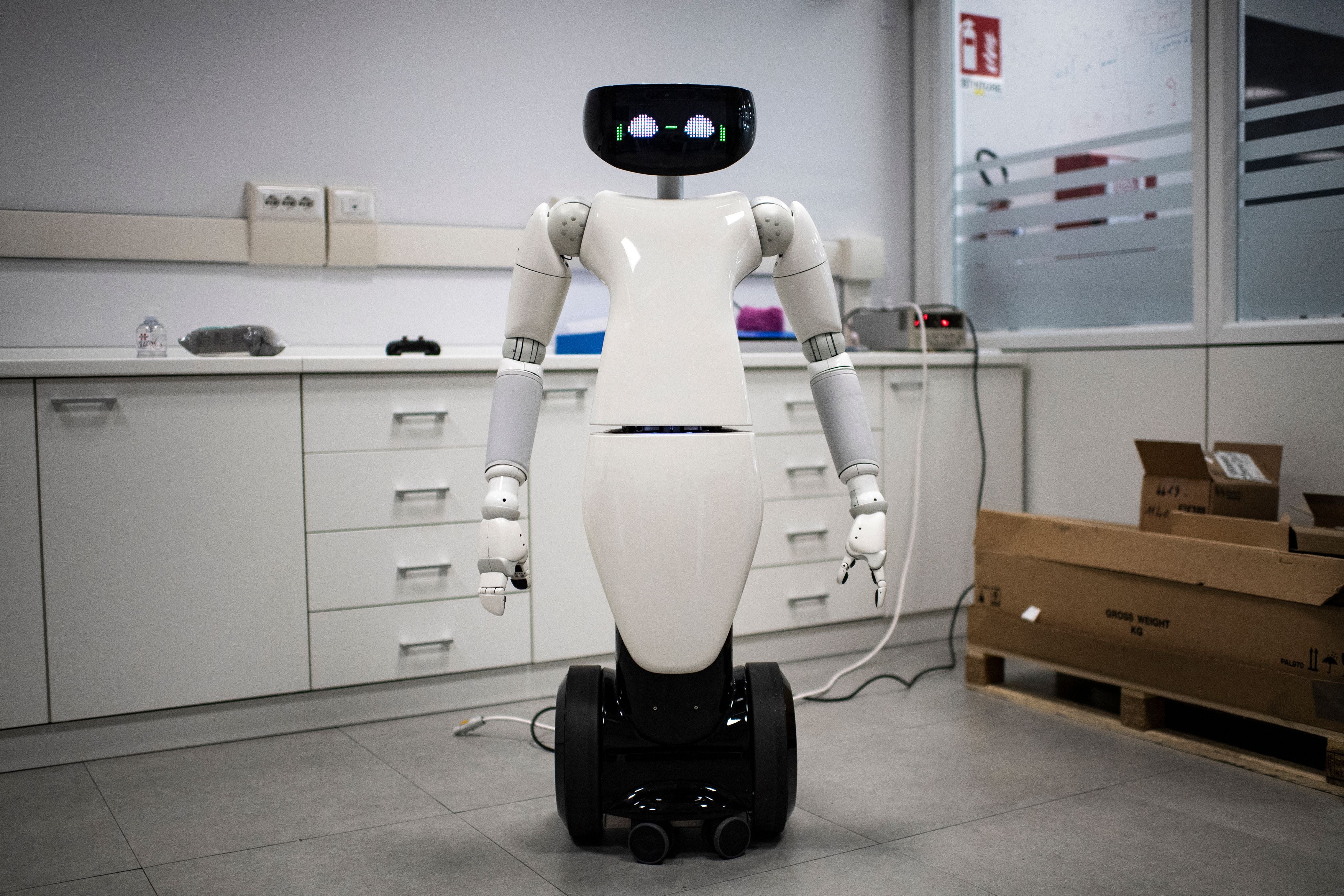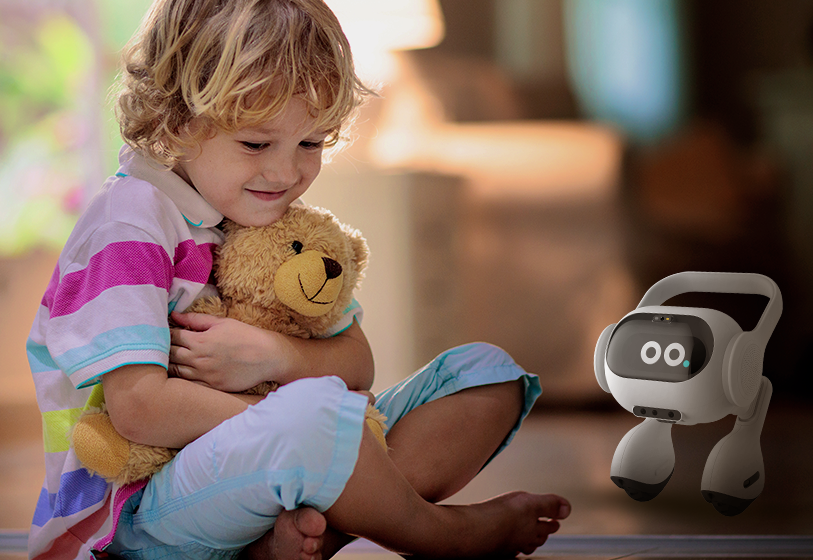Walking robots and all-seeing vacuums are putting our houses in order – but can they make chores obsolete?
The AI home of the future sounds like a domestic ideal, with our every concern catered for by obliging and kindly automated robots. The reality, writes Andrew Griffin, might not be quite so blissful...


Chores take weeks of our time each year. And already robots that help us out with them – those that automatically clean our floors, for instance – are selling in their millions and likely to keep growing.
Yet in our mainstream depictions of how robots are taking over, their impact on the future of domestic labour is barely discussed. Instead we see the lumbering dog-like, militarised creations of Boston Dynamics, or endless speculation about how sex robots are going to destroy human intimacy.
But technology’s impact on our homes is likely to be just as revolutionary, if not quite so deadly or so sexy. Robots have already vastly transformed the way we think about housework and are likely to do so even more dramatically in the years to come. Those changes have already echoed far beyond the home, changing the very way we live.
And so when LG’s AI assistant trundles into the Consumer Electronics Show this week, it is one part of a very big transformation in our homes. The assistant is humble: about the size of a stuffed toy, it can drive around the house on two legs with wheels on their bottom, using its cameras, sensors and other skills to both guard and control the home. (The company didn’t actually give the system a name, referring to it only as ”LG’s smart home AI agent”.)

LG’s new system doesn’t look like a great harbinger of revolution, with its white circular eyes and squat body. But the company certainly wants you to think of it that way. Its announcement said that it would “help free customers from household chores” and “help customers experience a smarter, more enjoyable life at home” – in so doing it’s a move towards what it pitches as the “zero labor home”. The hunched little robot, LG says, is bringing a dream where we are totally free of chores.
For now that is mostly a dream. Perhaps the best-known household robot so far is iRobot’s Roomba, which has sold more than 40 million of the automated vacuum cleaners, but they are far from commonplace. They remain expensive, and are likely only to become more so if people expect them to do a variety of tasks; all the Roomba has to do is drive and vacuum, but companies such as Tesla have promised complex machines that could cost tens of thousands of dollars each given their complexity.
Even LG’s description of its dream as a “zero labor home” might be giving itself a little credit; there’s only no labour if everything works as it should, and that is rare. In the real smart home of the moment, users are faced with seemingly never-ending complexity: smart home products that refuse to work with certain voice assistants, for instance, or connection problems that knock them offline entirely. We might end up swapping household chores for electronic ones; less time vacuuming, more time unplugging the router to make the internet work again.
But if the great promise from technology and robotics companies ever does arrive, and we are surrounded by humanoid robots that can do all of our domestic chores, it really could change everything. Even with existing developments such as dishwashers and washing machines, household chores take hours each week – and are notably unfairly distributed, with women doing most of the work.
Big changes of this kind have happened before. A study published in 2008 found that the declining price and increased availability of home appliances helped bring women into the workforce: some 10 to 15 per cent of the increased participation in the labour force by women between 1975 to 1999 was due to washing machines and other devices, it found.
This time around, the amount of time spent on household chores could drop by 40 per cent, according to research from the University of Oxford that was published last year. The exact work that will be automated varies rapidly – experts predicted that shopping would fall by 60 per cent, for instance, while physical childcare would only reduce by 21 per cent – but the results of that research showed that the difference would be dramatic, even in a decade.
Even in that future-looking study, however, the predictions made clear that both our experiences of housework and our predictions about it were dramatically skewed. Japanese participants thought there would be less reduction, but most notably men tended to predict that there would be less impact.
That might partly be a simple result of men underestimating how much of that work is done now. But the mistake matters: most AI researchers tend to be men, and if they are underestimating the amount of value that an automated home could bring, then they might also see it as a low priority and fail to bring it about.
The authors of that study also noted that the technological revolution sweeping the home isn’t all robots and smart lights: other technological innovations such as online grocery shopping and teaching over the internet are also dramatically changing our home lives. But many of those systems don’t necessarily cut out labour so much as make it invisible. Ordering dinner through a food delivery app might reduce the amount of work going on in the home, for instance, but it requires a vast web of labour.
Privacy is already a vast concern in the connected home. Many of the devices that power it have access to our most intimate moments. Recently, for example, pictures taken by iRobot’s Roombas including one of a woman using the toilet were found to have been uploaded to the internet; the company said that those pictured had consented to the data collection and were taking part in tests, but it was at the very least a reminder of how much the machines can see.
Those privacy concerns are only likely to get deeper and more prevalent as our homes become more and more smart. LG’s robot can roam around the house so that it can check on your pets and guard your security, but that means that it will also be able to see the most detailed parts of your home. What’s more, increasingly these systems are built on artificial intelligence that requires vast amounts of data, and so collecting it will become even more important.
Consumers, however, have seemingly been largely happy with welcoming data-collecting machines into their domestic spaces. Privacy campaigners often voice their concerns over smart assistants like Alexa and the microphone-powered tubes they require in our houses, but people have adopted them in large numbers. Publicly sharing videos from another Amazon product, Ring’s doorbell cameras, has become so popular that it has become its own small genre of internet video, with little concern for whether people knocking on a door can be said to have consented to having themselves recorded.
The zero-labour home can sound like a domestic ideal, with our every concern catered for by obliging and kindly automated staff. But lurking beneath are a host of all too human concerns: invasions of privacy, our lack of concern for domestic work, especially that done by women, and the invisible labour of delivery drivers and those who keep those robots working. LG’s bipedal robot might be here to usher in a new kind of home, but there are still plenty of questions to be asked about the people who are going to live in it.






Join our commenting forum
Join thought-provoking conversations, follow other Independent readers and see their replies
Comments